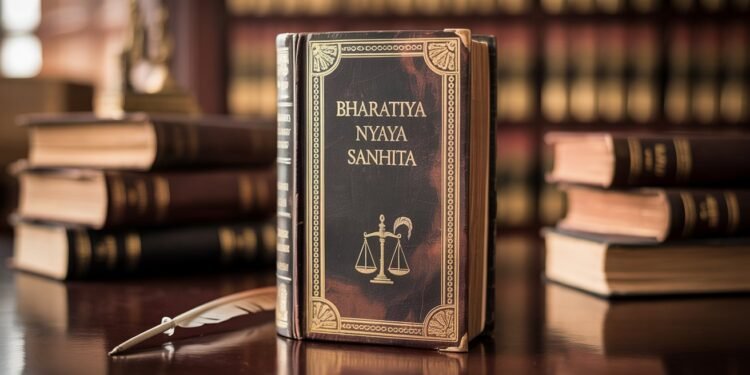Author: Divyanshi Mudgal
Chapter IX of the Bharatiya Nyaya Sanhita, 2023 deals with electoral offences, which are crucial for maintaining the integrity and fairness of the democratic process in India. This chapter outlines specific actions that are considered illegal during the conduct of elections, such as bribery, undue influence, personation, false statements, and breach of voting secrecy.
The purpose of these provisions is to prevent corrupt practices and ensure that elections are conducted in a free, fair, and transparent manner. By criminalizing dishonest tactics and manipulation of voters, this chapter plays a vital role in upholding electoral justice and the democratic values enshrined in the Constitution.
It covers Sections 169 to 177, prescribing punishments for each offence to deter individuals and political entities from undermining the electoral process.
Section 169 – Bribery.
Offering or accepting gratification (money, gift, etc.) to induce a person to vote or not to vote, or to influence their candidature.
Essentials:
– Accepting or offering gratification as a motive for:
– Voting or refraining from voting.
– Standing or refraining from standing as a candidate.
– Inducing someone else to vote or not vote.
– Inducing a person to stand or not stand as a candidate.
Punishment: Imprisonment up to 1 year or fine, or both.
Explanation: A declaration of public policy or promise of public action is not considered bribery.
Example: Distributing cash to villagers before elections to vote in favor of a candidate.
Section 170 – Undue Influence at Elections.
Using force, threat, or spiritual or psychological pressure to influence a voter’s choice. Essentials:
– Interference with free exercise of electoral rights.
– Threats to candidate, voter, or related individuals.
– Use of duress or spiritual influence.
Punishment: Imprisonment up to 1 year or fine, or both.
Illustration: A priest threatens followers with excommunication if they vote for a certain candidate.
Section 171 – Personation at Elections.
Voting or attempting to vote in someone else’s name or more than once.
Essentials:
– Voting as another person (dead, living, or fictitious).
– Voting more than once.
– Allowing or procuring such voting.
Punishment: Imprisonment up to 1 year or fine, or both.
Note: The section also applies to voting through postal ballots or electronic means.
Section 172 – False Statement in Connection with Elections. Publishing or circulating false statements about a candidate’s character or conduct.
Essentials:
– Intent to affect the outcome of an election.
– Publishing a false statement regarding personal character or conduct. Punishment: Imprisonment up to 6 months or fine, or both.
Case Law: R. Shankarappa v. Election Commission of India – Malicious defamatory statements made during campaigns may lead to disqualification.
Section 173 – Illegal Payments in Connection with Elections.
Expenses not authorized by the candidate’s election agent, including public meetings or advertisements.
Essentials:
– Payment made for promoting a candidate.
– Without proper authority or declaration.
Punishment: Fine up to ₹10,000.
Exception: If the person proves they had no intention to promote the candidate unlawfully.
Section 174 – Failure to Keep Election Accounts. Not maintaining a record of expenses as required by election laws.
Essentials:
– Candidate fails to maintain a true and correct account of election expenses. Punishment: Fine up to ₹5,000.
Section 175 – Maintenance of Secrecy of Voting. Disclosing or attempting to know for whom someone has voted.
Essentials:
– Breach of the secrecy of the ballot by an election officer or polling agent. – Use of information regarding voting preference for any gain.
Punishment: Imprisonment up to 3 months or fine, or both.
Section 176 – Illegal Payments in Connection with an Election. This section deals with unauthorized election expenditure on behalf of a candidate.
It aims to prevent unregulated election campaigning and bribery disguised as public influence efforts.
Essentials:
-Applies to third parties (not the candidate themselves).
-Any expenses made without written authorization of the candidate are illegal. -Includes costs for:
- Public meetings
- Advertisements
- Circulars, pamphlets
- Publications
- Other campaigning methods
Even small payments (over ₹10) require prior or post-facto approval. Exception:
If the unauthorized amount is ₹10 or less, the person must obtain written approval within 10 days of incurring the expense.
In such a case, it will be treated as authorized.
Punishment: Fine up to ₹10,000.
Section 177 – Failure to Keep Election Accounts.
This section penalizes a candidate or their election agent who fails to maintain proper and lawful records of the expenses incurred during the election process.
Essentials:
-There must be a legal requirement (under election laws like the Representation of the People Act, 1951) to maintain election expenditure accounts.
-The person fails to maintain such accounts.
-This includes all expenses directly or indirectly connected with the election. Punishment: Fine up to ₹5,000.



